Today’s missive is about the failure of success. This phrase is a take on the one coined in a paper I often reference by Dean Ludwig and Clinton Longenecker entitled The Bathsheba Syndrome: The Ethical Failure of Successful Leaders. This came to mind once again as I was reading the morning paper and discovered an article on yet another Naval Officer pleading guilty to bribery and conspiracy charges in conjunction with the Fat Leonard debacle. Here’s another sad failure of a successful individual. Perhaps this commander was an otherwise decent guy. But how does a decent guy, a successful Naval officer, wind up in the throes of bribery and prostitution? Before I sound too self-righteous, I should point out that there is a dark side to each of us. I just finished reading a great book by Christian Miller entitled The Character Gap: How Good Are We? The theme of this book was that we all are some mixture of good and bad. Most people wind up between the extremes. Surprisingly, we tend to think we are not a bad as we might actually be, and we almost always overlook our flaws. This problem of human nature gets magnified when we become successful, making it all the more important to constantly evaluate our behavior. The book ends with some strategies to keep one on a virtuous path. There is one interesting strategy worth mentioning here, “nudging toward virtue.” The basic premise is that there are little “nudges” you can make which tend to move one towards a more virtuous life. The analogy used is called “Fly in the Urinal”. There’s an airport in Europe that was having real trouble with maintaining cleanliness in the men’s room. Signs urging guys to pay more attention to doing their business apparently didn’t have much effect. By engraving the image of a house fly in the bottom of the urinals, spillage decreased 80%. The signs were a hammer, the fly was a nudge, but many times more effective than the hammer. (I’m reminded of the sign in the men’s room at Penn Station in New York: ONLY ONE PERSON PER URINAL) Nudges can be little things, giving blood, giving a homeless person a buck at a stoplight, a quick thank you to the janitor, etc. While nudges won’t necessarily turn things around, they are a reminder that each one of us could do better.
By engraving the image of a house fly in the bottom of the urinals, spillage decreased 80%. The signs were a hammer, the fly was a nudge, but many times more effective than the hammer. (I’m reminded of the sign in the men’s room at Penn Station in New York: ONLY ONE PERSON PER URINAL) Nudges can be little things, giving blood, giving a homeless person a buck at a stoplight, a quick thank you to the janitor, etc. While nudges won’t necessarily turn things around, they are a reminder that each one of us could do better.
Back to failures of success. Examples are everywhere. I always introduce myself as a ‘twice-failed” retiree.” I just can’t seem to get this retirement thing right. Many small businesses fail because they are wildly successful as an 8(a), but fail to make the transition to big business. Football teams can be highly successful for 58 minutes of a game, only to revert to a “prevent defense” for the last two minutes. They stop doing the things that made them successful for most of the game and the opposing team takes advantage of this lapse. Senior leaders destroy brilliant careers by outrageous behavior. They, too, abandon what made them successful all their career.

It seems to me that the worlds of success and failure are very much alike:
- Success or failure does not always relate to level of effort. Luck plays a role. Other people play a role. Events beyond your control play role. This is why it is so important to reflect on the results of your labors. Was I just lucky this time?
- Success or failure tend to have unintended consequences on those around you. They may be impacted, even though they may have had nothing to do with your behavior or actions.
- A single event can make you a success or a failure, but a single event rarely turns the tables. If you are successful, analyze why and keep doing that. If you have failed, realized that there’s probably a long road ahead to turn things around. (Note to self: Insert Luigi the Bridge Builder Joke here)
- Success and failure can be unfair. As they say, “A rising tide floats all boats”, but just as easily, one bad apple can ……yadda, yadda, yadda.
- Success and failure can happen randomly. Most leaders say one makes one’s own luck by setting the favorable conditions. Throughout my life, I’ve been lucky enough to have the successful surprises outnumber the opposite.
- Both always bring the judgement of others on you, good and bad. Some are envious. Some are resentful. Some feel vindicated. Some are happy/sad for you. Regardless, you will be judged.
So how does a successful person avoid the “failure of success”, succumbing to the Bathsheba Effect? How does one stay on the success side of the fine line?(This is a good place to point out that I firmly believe that the more successful you are, the more susceptible you become to the failure of success.) Besides the aforementioned Nudge to Virtue, Here are a few of tips I found useful:
- Set the Standard. Make sure all who work for you know YOUR standard. A particularly useful way to do this is to send out a memo on what your expectations are and how you expect business to be conducted. Include topics like who pays for lunch, how you expect gifts to be handled, what can and can’t be in an email, etc. If people know what you expect, they will generally deliver, but you have to tell them first.
- Use moral reminders. Set up a system to make sure you are adhering to your moral compass. Have an ethics topic of the day at staff meetings. I found using my EA as a moral reminder was effective. If I was scowling during a meeting, he might pass me a note that said “Smile.” Just think of something to keep yourself grounded and use it.
- Seek role models. Nothing beats having a good role model to fall back on. It doesn’t have to be someone who you can talk to (although that helps) Read about those you admire. Study their character traits and think about how they might react to a situation
- Attend to “Nagging Feelings.” If you find yourself mulling over tough decisions again and again, or if you are spending a lot of time justifying a decision, then something is wrong. If it’s bugging you, then you probably need to do some more thinking. Someone once said, “A clear conscience is the softest pillow.” It’s true. I suppose the corollary is “A guilty conscience is a bed of nails.” Bottom line is to listen to that little voice in your head.
- Fill the “Knowing-Doing” gap. This is a hard one for people that move into leadership positions. One of the “separators” between leaders and followers, is that leaders don’t have the luxury of looking the other way. If you know about something, you must take action. Once people are confident that you take action on the things you know need fixing, they are far more likely to take action themselves.
- Seek Advice. This is closely related to having a mentor, but is really all about realizing your limitations and knowing when to ask for advice on an issue. Having another perspective on tough issues can be very helpful and healthful.
- Practice Ethical Fitness. Think a little each day about how you are preparing for the next tough decision. Listen to the news and think about how you would react to situations. Work a little daily at making tough decisions so that when the chips are down and you have little time to make a decision, your ethical reflexes kick in.
- Get out of the office. Walk around. Talk to people. Watch what’s going on. Read the bulletin boards. Have lunch in the cafeteria with employees. Don’t let the small cloud of sycophants and head-nodders surrounding you keep you from knowing what’s really going on.
- Listen to (and value) all opinions. You don’t have to agree with or heed all the advice you are given, but it sure helps to know what others think.
- Reflect. Set some time aside for reflection each day. Insist your staff schedules it and protects it. Don’t let them fill it up with other meetings. It doesn’t have to be long…15 minutes is fine. There are plenty of people over you that can intrude on your time for reflection, but don’t let your staff do it.

- Be a role model. Pretty simple. You are a role model, rather you want to be or not. Remember that while it may not seem like it, everyone is watching what you do, what you say and how you say it. They are like your young kids sitting in a car seat. They are listening to everything you say and are happy to provide the grandparents with a complete rundown of what was said.



 security, check again on flight status (On Time) and head on over to the gate. I’ve got a nifty app on my phone that lets me see where the airplane is coming from so I can check on it….Lo and behold, my airplane is 30 minutes behind schedule ….but at my gate it still says “On Time.” If I ask the gate agent, usually I get a “nothing is showing on my system” reply. Eventually, they have to come clean and the announcement is made that there’s a delay. Now they post a new departure time, usually wildly optimistic, that they have no hope of making….I’d much rather they use technology and post actual status….6 minutes late, or 15 minutes early. By the way, ever had a delay because the aircrew was late arriving from another flight? The airlines know that way ahead of time. Why don’t they put a status up that reflects that? I don’t trust ‘em.
security, check again on flight status (On Time) and head on over to the gate. I’ve got a nifty app on my phone that lets me see where the airplane is coming from so I can check on it….Lo and behold, my airplane is 30 minutes behind schedule ….but at my gate it still says “On Time.” If I ask the gate agent, usually I get a “nothing is showing on my system” reply. Eventually, they have to come clean and the announcement is made that there’s a delay. Now they post a new departure time, usually wildly optimistic, that they have no hope of making….I’d much rather they use technology and post actual status….6 minutes late, or 15 minutes early. By the way, ever had a delay because the aircrew was late arriving from another flight? The airlines know that way ahead of time. Why don’t they put a status up that reflects that? I don’t trust ‘em. develops.” Huh? Why say “There’s a chance of snow tomorrow” when you can say “I can’t rule out the possibility of over 12 inches of snow and blizzard conditions similar to Antarctica will be here tomorrow because the Manchurian model says so.” And why are we naming storms which we used to label northeasters except to make them seem as serious as a hurricane so the viewers will “stay tuned”? Since when has a cold spell become a “Bomb?” Everything the weather reporters say always emphasize the extremes. I’m interested in their best guess about what’s likely to happen, not their speculations on how bad it might be. They seem to be just opposite.
develops.” Huh? Why say “There’s a chance of snow tomorrow” when you can say “I can’t rule out the possibility of over 12 inches of snow and blizzard conditions similar to Antarctica will be here tomorrow because the Manchurian model says so.” And why are we naming storms which we used to label northeasters except to make them seem as serious as a hurricane so the viewers will “stay tuned”? Since when has a cold spell become a “Bomb?” Everything the weather reporters say always emphasize the extremes. I’m interested in their best guess about what’s likely to happen, not their speculations on how bad it might be. They seem to be just opposite.





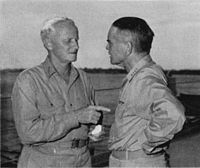



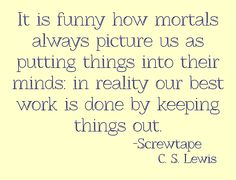
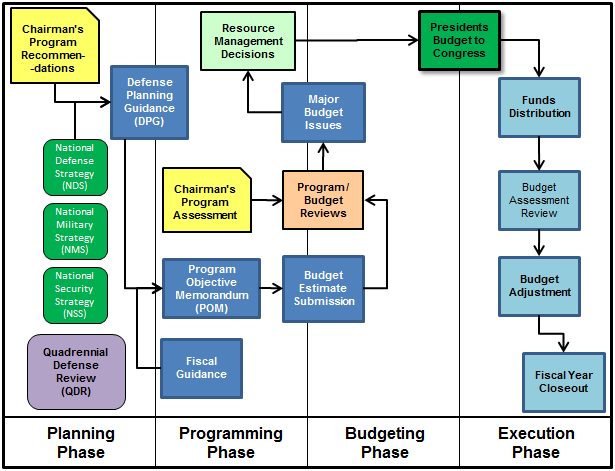
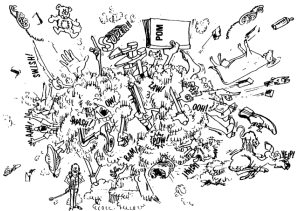
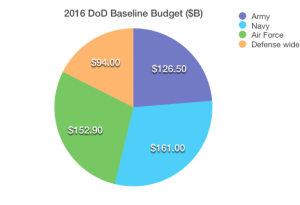
 regarding the relief of 16 Air Force officers
regarding the relief of 16 Air Force officers Back to the nuke thing. One thing I knew as an Attack Squadron Commanding Officer: The quickest way to be relieved without question was to score anything other than an outstanding on nuke inspections. Consequently, I put my absolute best officers and enlisted personnel in those positions. I assume the same is true in the Air Force, so that the absolute best must be assigned nuclear positions. In that business, there is no room for error. Obviously some house cleaning was needed and the Air Force leadership did what they had to do.
Back to the nuke thing. One thing I knew as an Attack Squadron Commanding Officer: The quickest way to be relieved without question was to score anything other than an outstanding on nuke inspections. Consequently, I put my absolute best officers and enlisted personnel in those positions. I assume the same is true in the Air Force, so that the absolute best must be assigned nuclear positions. In that business, there is no room for error. Obviously some house cleaning was needed and the Air Force leadership did what they had to do.